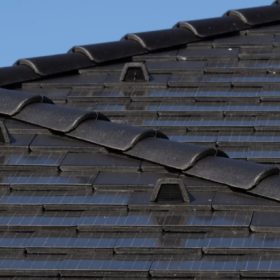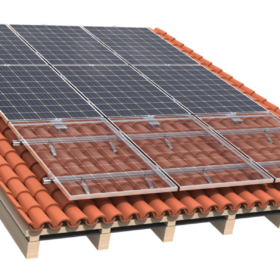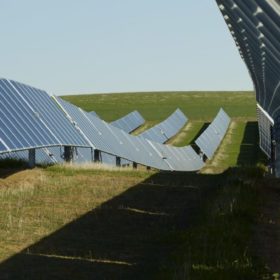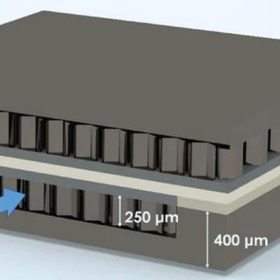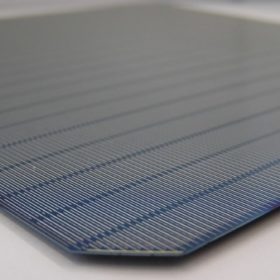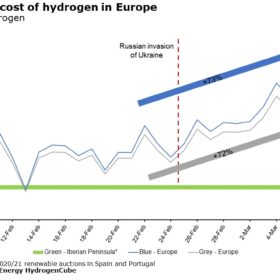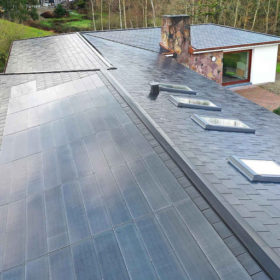Hungarian start-up launches solar tile with output of 167W per m²
Developed by Hungarian manufacturer Terràn, the Generon solar tile is based on concrete support and weighs is in at 5.7kg.
Hyundai Sonata hybrid is equipped with a solar roof
The 205W PV array adds nearly 1,000 miles of range each year and helps prevent battery discharge events that are responsible for four out of every ten roadside emergency breakdowns.
Ricoh launches mini hydropower system for remote locations, usable with solar-plus-storage
The 1kW pico-hydro generation system can be used with factory drainage systems and irrigation canals. According to the manufacturer, it is made with 3D-printed sustainable materials based on recycled plastics and is able to generate electricity even with a small stream of water. Solar and storage may be linked to the system to ensure stable power supply.
Aerocompact unveils quick-mounting hook for PV arrays on pitched roofs
The device is claimed to be an ideal solution for deploying solar arrays on Mediterranean roof architecture.
Nextracker unveils new tracker for sloping ground
The NX Horizon-XTR tracker can be used with all types of modules and is claimed to be an ideal solution for sloping, uneven, and demanding terrain.
Battery supply could remain tight into next year
Analyst Wood Mackenzie has predicted soaring demand for electric vehicle devices will ensure supply will not keep pace with demand until some point in 2023.
Monolithic fuel cell with power density of 5.6kW/L
An international research group has developed a solid oxide fuel cell that may be used in vehicles. The monolith device has an active cell area of around 18 cm2 and was built through common manufacturing processes. It was found to achieve a high power density of 5.6 kW/L, which the scientists said is comparable with that of the best performing fuel cells based on ceramic anodes.
POLO-IBC solar cell with 23.7% efficiency
Scientists in Germany have developed two kinds of solar cells based on n-type doped electron-collecting poly-Si on oxide (POLO) junctions with aluminum-alloyed p+ contacts. Both devices are claimed to be possible upgrades of PERC technologies. The best-performant cell is an IBC device showing a power conversion efficiency of 23.71%, an open-circuit voltage of 711.5mV, a short-circuit current of 41.3mA/cm2, and a fill factor of 80.9%.
Invasion of Ukraine an inadvertent boost for green hydrogen
Rystad Energy has joined BloombergNEF with a significant forecast for gray and blue hydrogen off the back of Russia’s invasion of Ukraine. According to the analysts, the impact of the war has sent prices of fossil fuel-tied forms of hydrogen production surging, leaving the gradual but consistent downward price trend of green hydrogen now looking remarkably competitive.
New solar tiles from Denmark
Danish BIPV specialist Dansk Solenergi has added two more tiles to its product range – an 18.15%-efficient dark grey panel and a 16.7%-efficient terracotta product. Both panels have an operating temperature coefficient of -0.34% per degree Celsius.
